
Ha'apai Islands: A Tropical Paradise in Tonga
The Ha'apai Islands, nestled in the heart of the South Pacific, are a haven for those seeking a serene and unspoiled escape. This archipelago of 62 islands offers a mix of pristine beaches, lush greenery, and vibrant coral reefs. The islands are relatively untouched by mass tourism, providing a perfect retreat for travelers looking to experience authentic Tongan culture and natural beauty. Visitors can explore the main island of Lifuka, where they can stroll through small villages, meet friendly locals, and immerse themselves in the slow-paced island life. The crystal-clear waters surrounding the islands are ideal for snorkeling, diving, and whale watching, especially from July to October when humpback whales migrate to the region. Divers can marvel at the underwater wonders, including colorful coral gardens and an abundance of marine life. For history enthusiasts, the Ha'apai Islands hold significant historical value. The islands were the site of many early European explorations and were famously visited by Captain James Cook in the 18th century. The remnants of these historical encounters can be found throughout the islands, offering a glimpse into the past. Nature lovers will find the Ha'apai Islands a paradise of biodiversity. From the verdant landscapes of Uoleva Island to the bird-watching opportunities on remote islets, the natural beauty of Ha'apai is sure to captivate. Whether you are relaxing on a secluded beach, exploring the vibrant underwater world, or discovering the rich history and culture, the Ha'apai Islands promise an unforgettable experience.
Local tips in Ha'apai Islands
- Visit between July and October to witness the majestic humpback whale migration.
- Bring cash, as ATMs are scarce and credit cards may not be accepted everywhere.
- Respect local customs and dress modestly when visiting villages.
- Pack reef-safe sunscreen to protect the delicate marine environment.
- Try local Tongan dishes like 'Ota ika' (raw fish salad) for an authentic culinary experience.
Ha'apai Islands: A Tropical Paradise in Tonga
The Ha'apai Islands, nestled in the heart of the South Pacific, are a haven for those seeking a serene and unspoiled escape. This archipelago of 62 islands offers a mix of pristine beaches, lush greenery, and vibrant coral reefs. The islands are relatively untouched by mass tourism, providing a perfect retreat for travelers looking to experience authentic Tongan culture and natural beauty. Visitors can explore the main island of Lifuka, where they can stroll through small villages, meet friendly locals, and immerse themselves in the slow-paced island life. The crystal-clear waters surrounding the islands are ideal for snorkeling, diving, and whale watching, especially from July to October when humpback whales migrate to the region. Divers can marvel at the underwater wonders, including colorful coral gardens and an abundance of marine life. For history enthusiasts, the Ha'apai Islands hold significant historical value. The islands were the site of many early European explorations and were famously visited by Captain James Cook in the 18th century. The remnants of these historical encounters can be found throughout the islands, offering a glimpse into the past. Nature lovers will find the Ha'apai Islands a paradise of biodiversity. From the verdant landscapes of Uoleva Island to the bird-watching opportunities on remote islets, the natural beauty of Ha'apai is sure to captivate. Whether you are relaxing on a secluded beach, exploring the vibrant underwater world, or discovering the rich history and culture, the Ha'apai Islands promise an unforgettable experience.
When is the best time to go to Ha'apai Islands?
Iconic landmarks you can’t miss
Mapu'a Vaea Blowholes
Explore the breathtaking Mapu'a Vaea Blowholes, a stunning natural spectacle in Tonga where ocean waves create magnificent water spouts and breathtaking views.
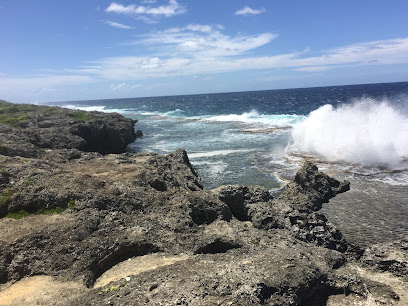
Tongatapu
Explore the breathtaking beauty and rich cultural heritage of Tongatapu, Tonga's main island, where adventure and relaxation await in paradise.
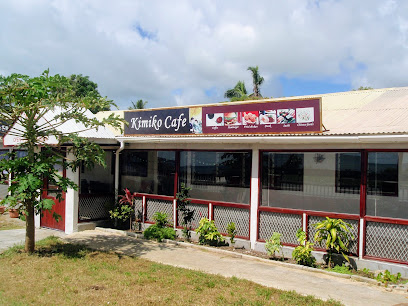
Royal Palace of Tonga
Discover the Royal Palace of Tonga, a historical landmark that showcases the beauty and culture of Tongan royalty in the heart of Nuku'alofa.
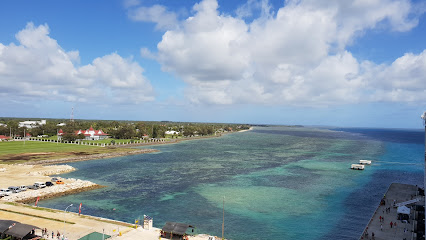
Anahulu Cave
Explore the enchanting Anahulu Cave, a mesmerizing underground wonder in Haveluliku, Tonga, featuring stunning formations and crystal-clear waters.
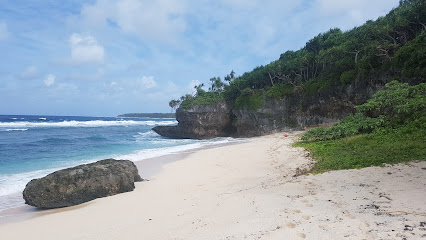
Royal Tombs
Explore the majestic Royal Tombs of Tonga, a historical landmark that offers insight into the island nation's royal lineage and cultural heritage.
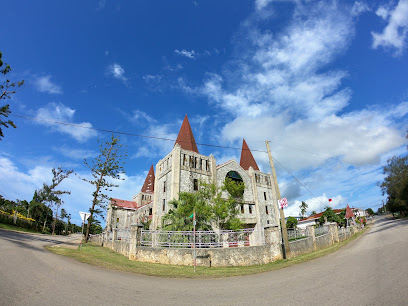
Tsunami Rock
Discover the breathtaking Tsunami Rock, a natural marvel in Tonga that offers stunning views and rich cultural significance for every traveler.
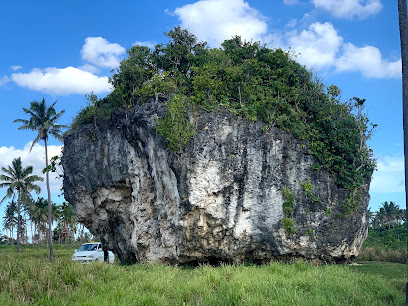
Ancient Tonga
Explore the rich cultural heritage of Ancient Tonga in Nuku'alofa, where history, artistry, and tradition come to life amidst stunning scenery.
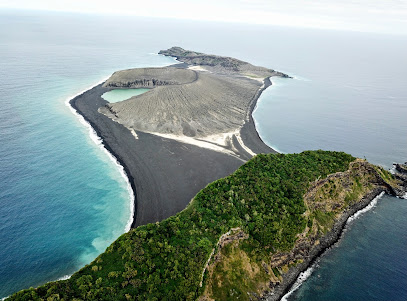
Ha'amonga 'a Maui Trilithon
Explore the Ha'amonga 'a Maui Trilithon, a stunning historical landmark that highlights Tonga's rich cultural heritage and architectural marvels.
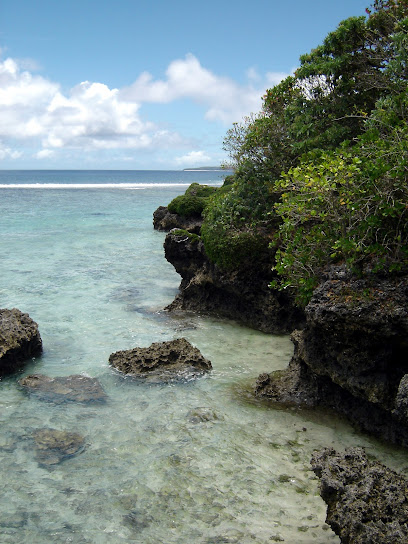
Fafa Island
Experience the enchanting beauty of Fafa Island in Tonga, where pristine beaches and rich marine life create a perfect tropical escape.
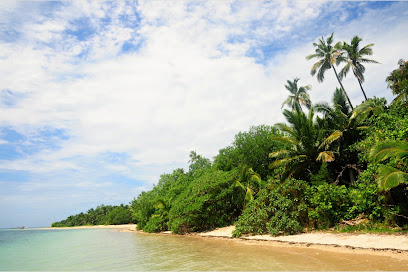
Ha'atafu Beach
Discover the serene beauty of Ha'atafu Beach in Tonga, a perfect escape for sunbathers, snorkelers, and nature lovers alike.
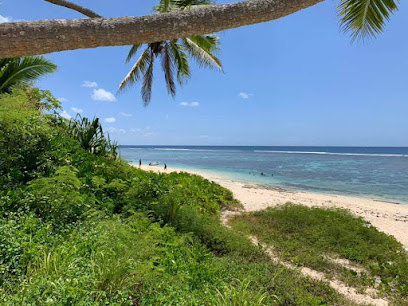
Captain Cook Landing Site
Discover the Captain Cook Landing Site in Tonga, where history meets breathtaking coastal views in a tranquil atmosphere.
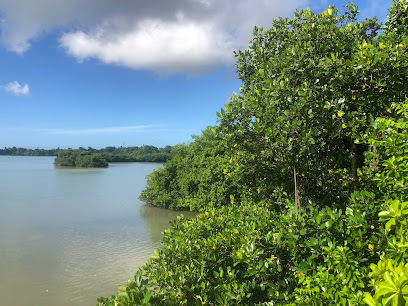
ʻEua
Explore the breathtaking landscapes and rich culture of ʻEua Island, a hidden gem in Tonga perfect for adventurers and nature lovers.
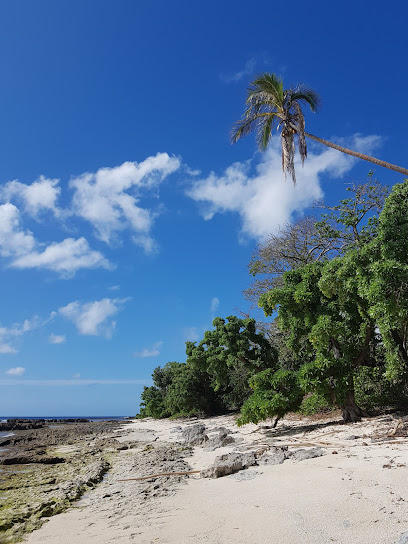
Paepae o Tele'a
Explore Paepae o Tele'a, a historical landmark in Mu'a, Tonga, where ancient traditions and breathtaking views await every traveler.
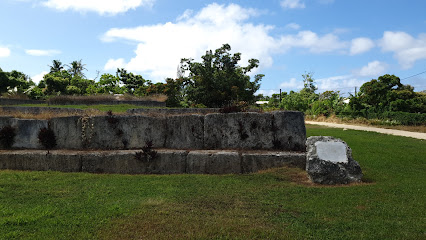
Pangaimotu Island
Experience the tranquil beauty of Pangaimotu Island, a tropical paradise in Tonga perfect for relaxation and underwater adventures.
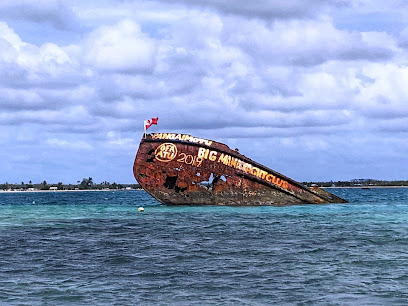
Tonga National Museum
Explore the rich cultural heritage of Tonga at the Tonga National Museum, a treasure trove of history and art in Nuku'alofa.
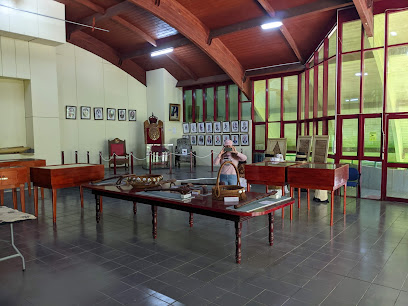
Unmissable attractions to see
Fafa Island
Experience the enchanting beauty of Fafa Island, a tropical paradise in Tonga with stunning beaches and vibrant marine life.
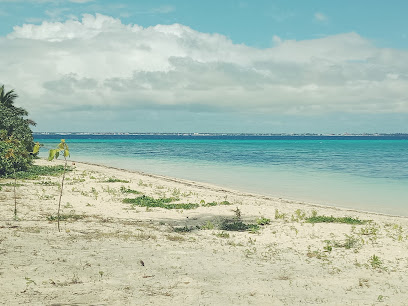
House of Tonga
Experience the essence of Tonga at the House of Tonga, where hospitality meets adventure in the heart of Nuku'alofa.

Pangaimotu Island
Experience the untouched beauty of Pangaimotu Island, a tropical paradise in Tonga with pristine beaches, vibrant marine life, and serene landscapes.
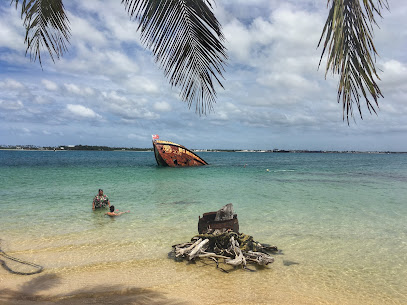
Tonga National Museum
Explore the rich cultural heritage of Tonga at the Tonga National Museum, a hidden gem in Nuku'alofa, showcasing fascinating artifacts and traditions.
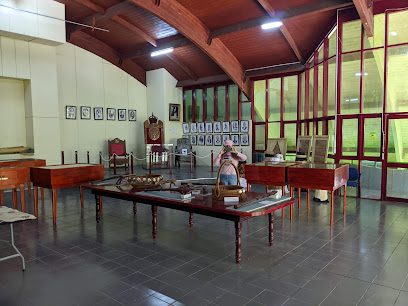
Mounu Island
Explore the serene beauty of Mounu Island, Tonga – a hidden paradise with stunning beaches, vibrant marine life, and rich cultural experiences.

Hufangalupe
Explore Hufangalupe, a breathtaking bridge in Fua'amotu, Tonga, where stunning views and rich local culture await every traveler.

Fukave Island
Discover the untouched beauty of Fukave Island, Tonga's hidden gem with pristine beaches and vibrant marine life, perfect for relaxation and adventure.
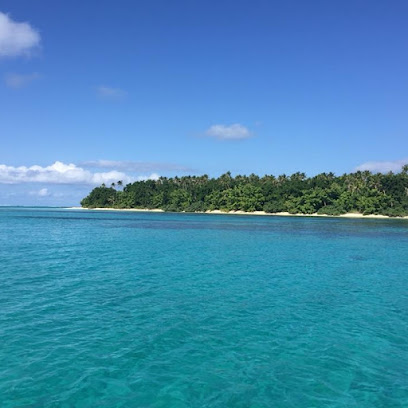
St Mary's Cathedral
Explore the architectural beauty and spiritual tranquility of St Mary's Cathedral in Nuku'alofa, a must-visit cultural landmark in Tonga.

'Oholei Beach
Discover the serene beauty of 'Oholei Beach, a hidden paradise in Tonga perfect for relaxation and unforgettable sunsets.
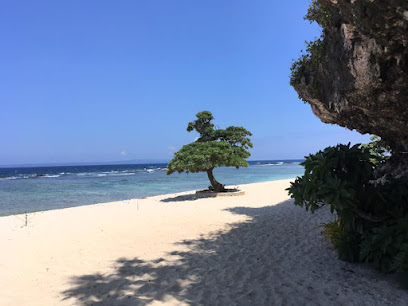
Essential places to dine
Coffee Post
Discover the heart of Tonga at Coffee Post in Maufanga, where rich flavors meet island hospitality in every cup.
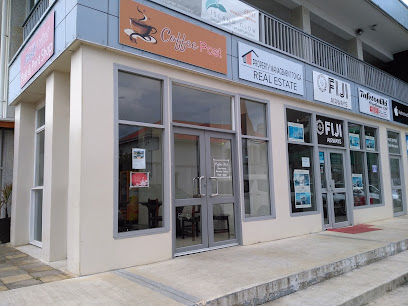
Little Italy Hotel
Discover Little Italy Hotel: A perfect blend of cozy accommodations and authentic Italian cuisine in Nuku'alofa.

Friends Cafe
Experience authentic Tongan hospitality at Friends Cafe in Nuku'alofa, where delicious food meets a welcoming atmosphere.
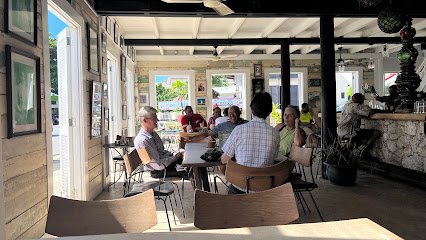
Cafe Escape
Discover authentic Tongan flavors at Cafe Escape in Nuku'alofa - where culinary delight meets warm hospitality.
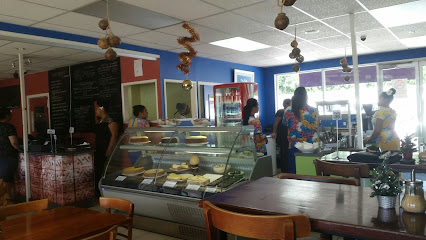
Chef Zero Restaurant
Discover the flavors of Tonga at Chef Zero Restaurant, where local ingredients meet exceptional culinary craftsmanship in a welcoming atmosphere.
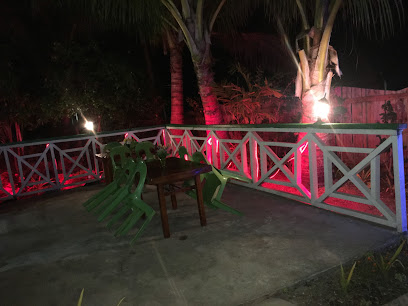
The TOP Restaurant and Lounge
Discover exquisite dining with breathtaking views at The TOP Restaurant and Lounge in Nuku'alofa, Tonga's culinary gem.
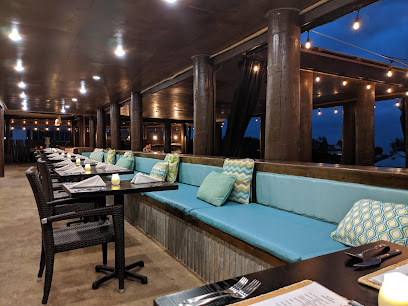
Mum's Cafe Nukualofa
Discover authentic Tongan flavors at Mum's Cafe in Nuku'alofa – where hospitality meets delicious cuisine.
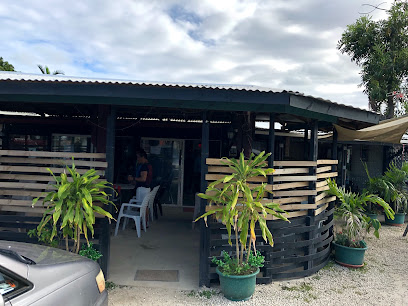
Tupu'anga Coffee Factory and Cafe
Experience authentic Tongan flavors at Tupu'anga Coffee Factory and Cafe in Nuku'alofa - where every cup tells a story.
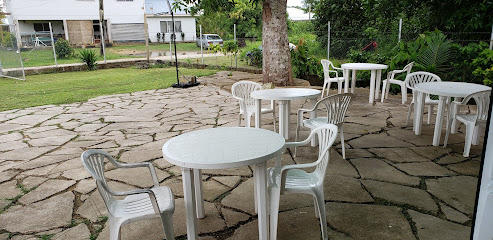
Young’s Kitchen
Discover authentic Tongan flavors at Young's Kitchen in Nuku'alofa—where every meal tells a story.
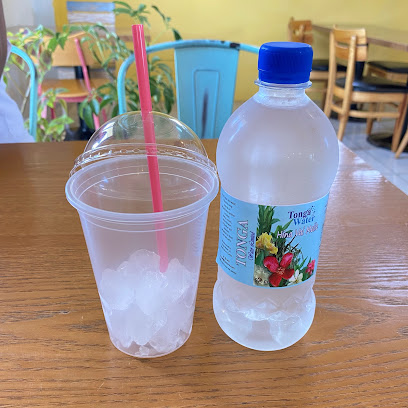
The Waterfront Cafe
Discover culinary bliss at The Waterfront Cafe in Nuku'alofa—where local flavors meet stunning waterfront views.
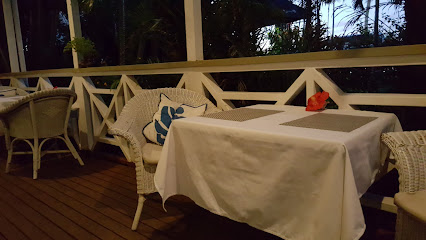
Frangipani - Korean Restaurant/Karaoke
Discover the vibrant flavors of Korea at Frangipani Restaurant in Nuku'alofa – where delicious food meets lively karaoke entertainment.
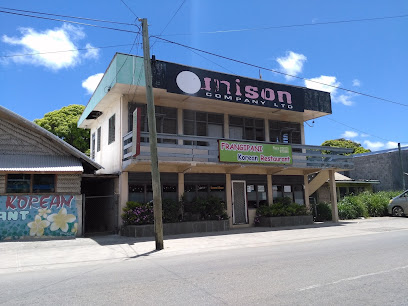
Nauti Ruby's Bar & Restaurant
Discover the charm of Nauti Ruby's Bar & Restaurant in Nuku'alofa - where delicious food meets breathtaking ocean views.
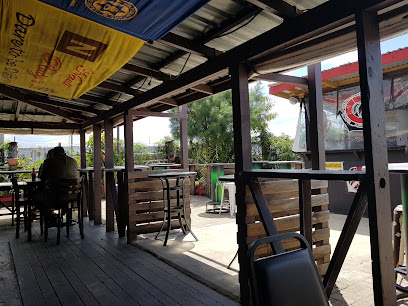
Sabrina's Chicken Vilovilo
Experience authentic Tongan barbecue at Sabrina's Chicken Vilovilo in Nuku'alofa - a culinary delight not to be missed during your travels.
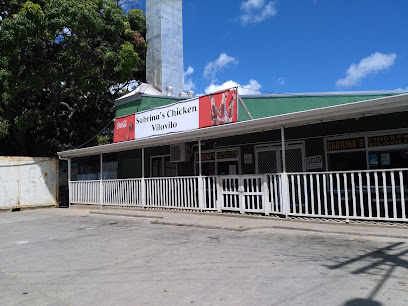
Tropical Taste
Discover the authentic flavors of Tonga at Tropical Taste, where every dish tells a story of culture and tradition.
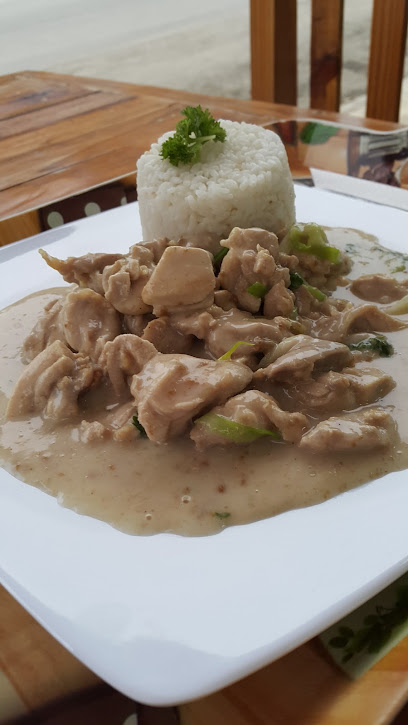
Moli Green Cafe
Discover Moli Green Cafe in Nuku'alofa - your tropical haven for exceptional coffee and delightful bites amidst lush surroundings.
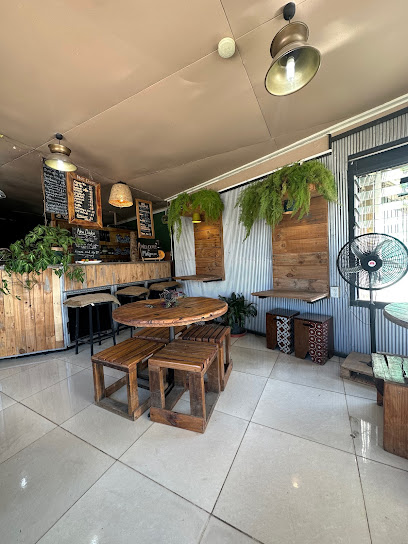
Markets, malls and hidden boutiques
Talamahu Market
Explore Talamahu Market: Nuku'alofa's bustling fresh food market bursting with local flavors, culture, and unique handcrafted souvenirs.
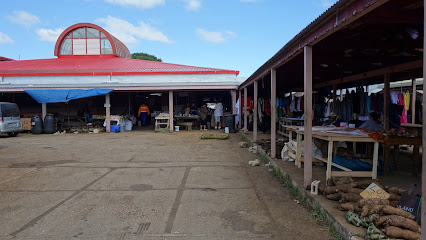
Costlow Supermarket
Explore authentic Tongan flavors and local goods at Costlow Supermarket, your go-to shopping destination in Pea, Tonga.
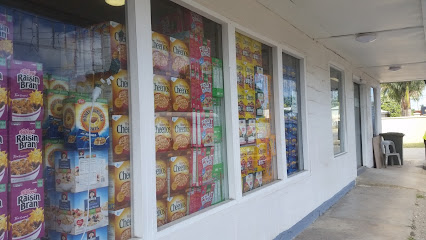
Hiki 'O Tonga
Discover Hiki 'O Tonga: A shopping paradise in Nuku'alofa where local charm meets modern retail.
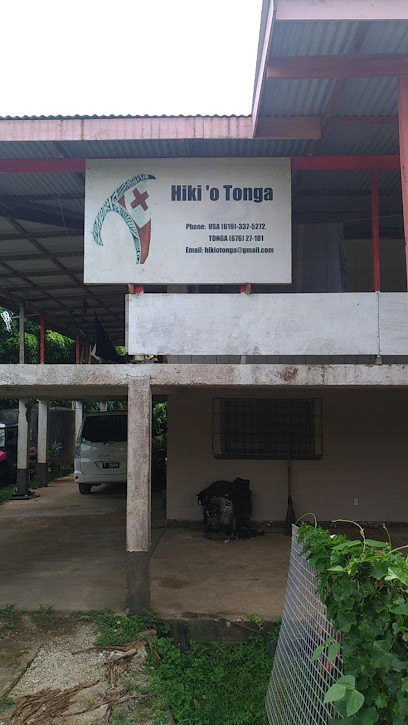
EZ TONGA ONLINE SHOPPING
Discover the essence of Tonga at EZ Tonga Online Shopping, where local products and culture come together in Nuku'alofa.

Si'i Kae Ola Supermarket
Discover local flavors and everyday essentials at Si'i Kae Ola Supermarket in Nuku'alofa, Tonga's bustling hub of culture and cuisine.
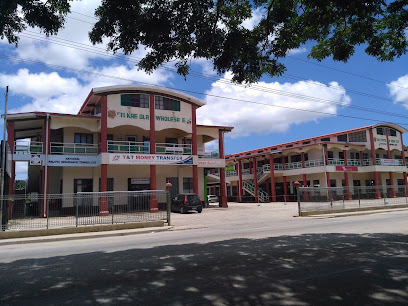
Langafonua Handicraft Centre and Gallery
Explore Tongan craftsmanship at Langafonua Handicraft Centre and Gallery, a vibrant hub of local art and culture in Nuku'alofa.
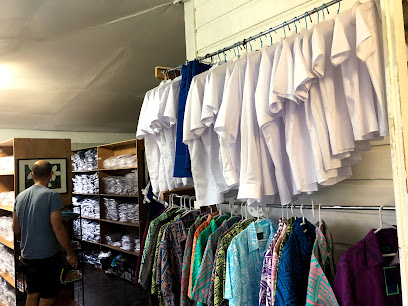
Friendly Island Bookshop
Explore Tonga's rich culture at the Friendly Island Bookshop in Nuku'alofa, a hidden gem for book lovers and cultural enthusiasts.
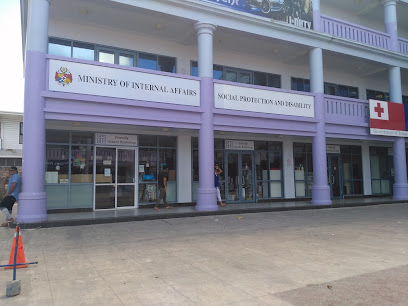
Fakafeta'i Store
Experience authentic Tongan hospitality and shop for unique local treasures at Fakafeta'i Store in Nuku'alofa.
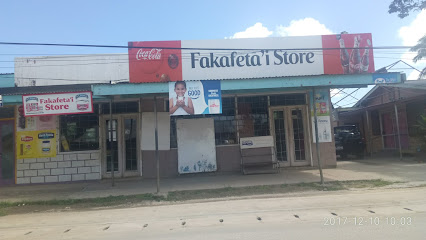
Leiola
Explore the vibrant flavors of Tonga at Leiola, Nuku'alofa's top beer store, offering a curated selection of local and international brews.
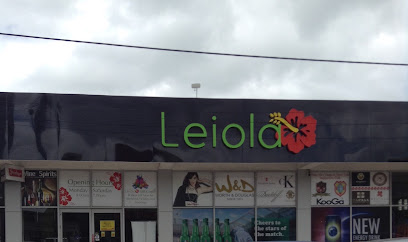
Le-Ata Tonga
Explore the vibrant Tongan culture through unique fashion at Le-Ata Tonga, a boutique in the heart of Nuku'alofa.
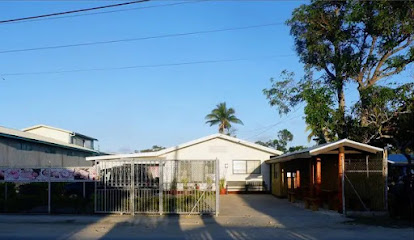
FORTUNE ISLAND SHOPPING CENTER
Discover local crafts, fashion, and souvenirs at the Fortune Island Shopping Center, a vibrant shopping hub in Nuku'alofa, Tonga.
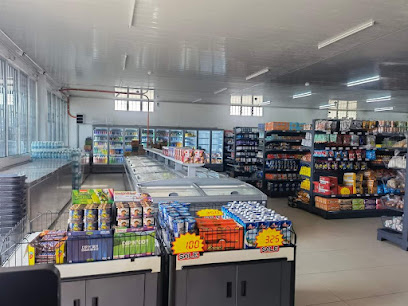
Lion Liquor
Discover the essence of Tongan culture at Lion Liquor, your go-to spot for local brews and a taste of the islands.
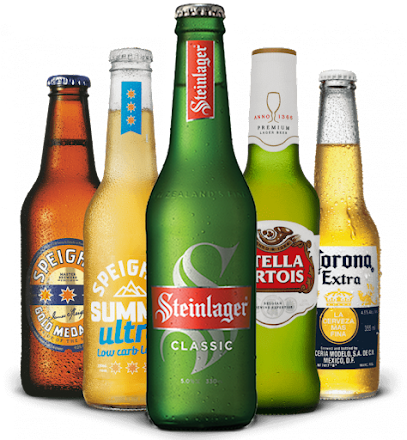
Tuhulu Media
Discover Tuhulu Media in Tofoa for exceptional video production and photography services that celebrate Tongan culture and landscapes.

Joy's Gifts & Souvenir Shop
Explore authentic Tongan souvenirs and handcrafted gifts at Joy's Gifts & Souvenir Shop in Nuku'alofa, a must-visit destination for travelers.
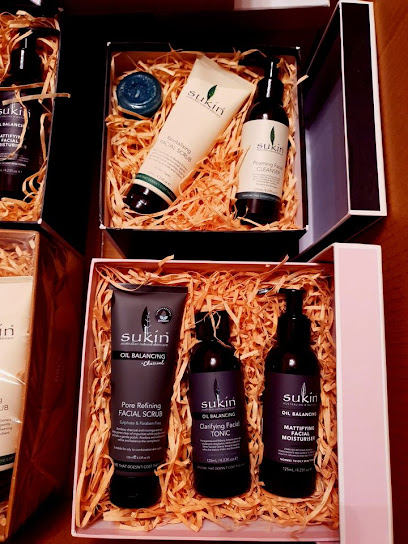
Hangai Tokelau Fea
Explore the vibrant local culture at Hangai Tokelau Fea, a must-visit store in Nuku'alofa for authentic Tongan handicrafts and souvenirs.

Essential bars & hidden hideouts
Friends Cafe
Discover the vibrant flavors and warm hospitality of Tonga at Friends Cafe, a must-visit destination in Nuku'alofa.
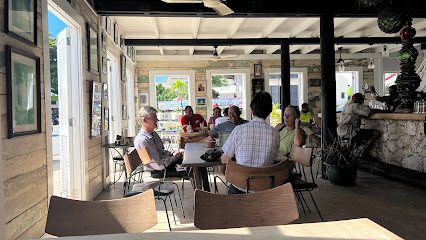
Billfish Bar and Restaurant
Experience the vibrant flavors and stunning views at Billfish Bar and Restaurant in Nuku'alofa - a must-visit for every traveler in Tonga.
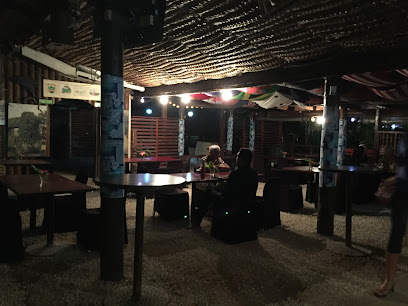
Chef Zero Restaurant
Experience the vibrant flavors of Tonga at Chef Zero Restaurant, where every meal is a delightful culinary adventure.
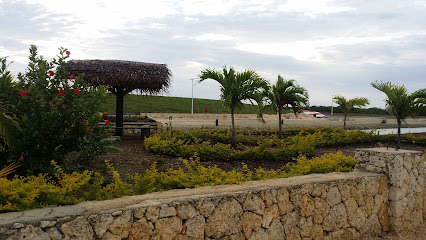
The TOP Restaurant and Lounge
Discover the exquisite flavors of Tonga at The TOP Restaurant and Lounge, where local cuisine meets breathtaking views in Nuku'alofa.
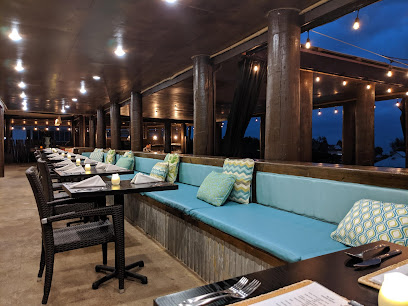
Mum's Cafe Nukualofa
Discover authentic Tongan flavors at Mum's Cafe in Nuku'alofa, where local ingredients meet warm hospitality.
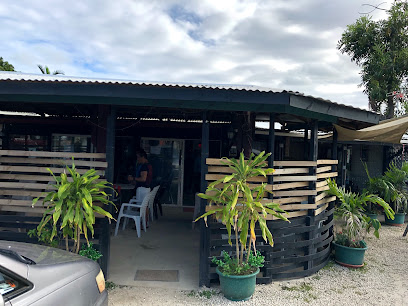
Lunarossa Deli
Experience the authentic flavors of Tonga at Lunarossa Deli, a top-rated takeout restaurant in Nuku'alofa, perfect for tourists seeking delicious local cuisine.
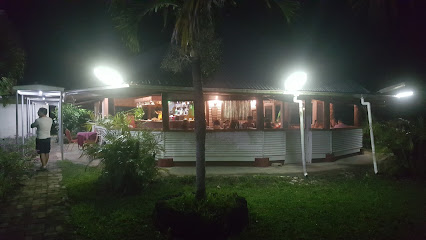
Young’s Kitchen
Discover authentic Tongan flavors at Young's Kitchen in Nuku'alofa, where every dish tells a story of local culinary tradition.
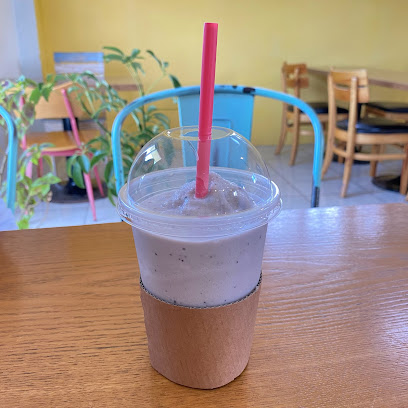
Happy Sailor Tattoo Tonga
Experience exceptional artistry and personalized service at Happy Sailor Tattoo Tonga, where your travel memories become unique body art.
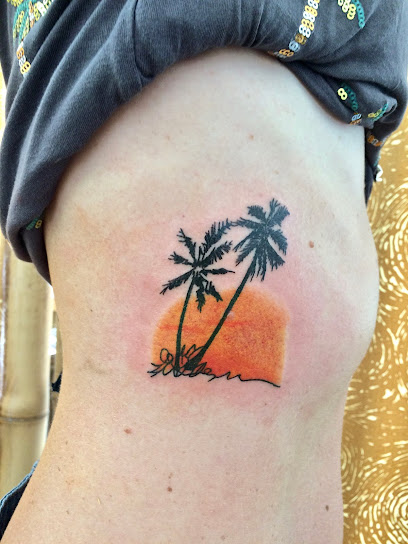
Sabrina's Chicken Vilovilo
Experience the rich flavors of Tongan barbecue at Sabrina's Chicken Vilovilo in Nuku'alofa, a culinary gem for every food lover.
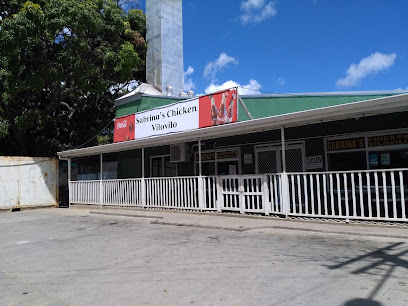
Nauti Ruby's Bar & Restaurant
Discover the vibrant atmosphere and delectable flavors at Nauti Ruby's Bar & Restaurant in Nuku'alofa, your gateway to tropical bliss.
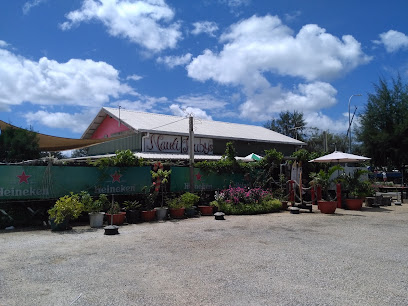
Reload Bar
Experience the vibrant nightlife of Nuku'alofa at Reload Bar, where local culture meets a lively atmosphere and diverse drink selection.
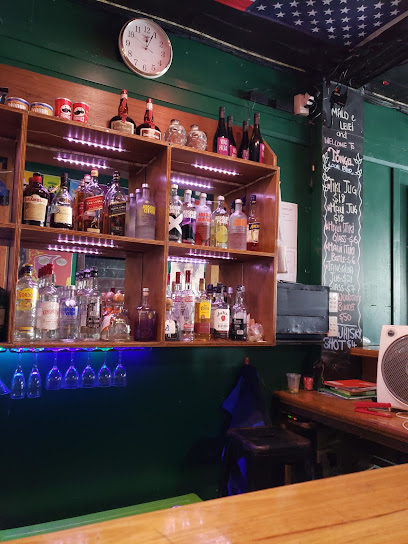
Tali'eva Inn Bar
Vibrant bar in Nuku'alofa offering local drinks, lively entertainment, and a welcoming atmosphere for tourists and locals alike.
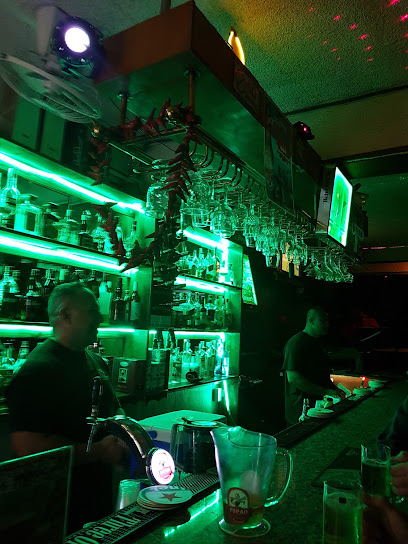
Talahiva Restaurant
Experience authentic Tongan flavors at Talahiva Restaurant, a must-visit culinary destination in Nuku'alofa, where every dish tells a story.
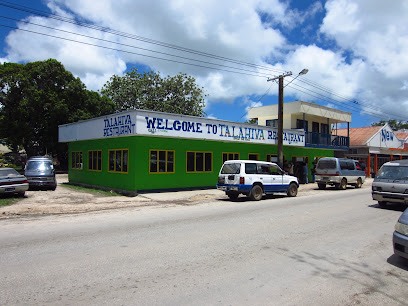
Big Mama's Bar
Experience the vibrant atmosphere and breathtaking views at Big Mama's Bar on Pangaimotu Island, your tropical haven in Nuku'alofa.
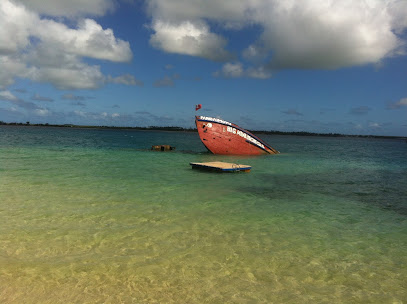
Local Phrases about Ha'apai Islands
-
- HelloMalo e lelei
[mah-loh eh leh-leh] - GoodbyeNofo ā
[noh-foh ah] - Yes‘Io
[‘ee-oh] - No‘Ikai
[‘ee-kai] - Please/You're welcomeFakamolemole
[fah-kah-moh-leh-moh-leh] - Thank youMālō
[mah-loh] - Excuse me/SorryTulou
[too-loh] - How are you?Ko e ha koe?
[koh eh hah koh-eh] - Fine. And you?Lelei. Pe ‘a koe?
[leh-leh. peh ‘ah koh-eh] - Do you speak English?Te u fakapā ‘a e lea fakapālangi?
[teh oo fah-kah-pah ‘ah eh leh-ah fah-kah-pah-lah-ngi] - I don't understandTe u ‘ikai ke ‘ilo
[teh oo ‘ee-kai keh ‘ee-loh]
- HelloMalo e lelei
-
- I'd like to see the menu, pleaseKā tau ‘o ‘alu ki he menu, fakamolemole
[kah tao ‘oh ‘ah-loo kee heh meh-noo, fah-kah-moh-leh-moh-leh] - I don't eat meatTe u ‘ikai ‘ai e me‘a
[teh oo ‘ee-kai ‘ai eh meh-‘ah] - Cheers!Mālō!
[mah-loh] - I would like to pay, pleaseKā tau ke totongi, fakamolemole
[kah tao keh toh-toh-ngi, fah-kah-moh-leh-moh-leh]
- I'd like to see the menu, pleaseKā tau ‘o ‘alu ki he menu, fakamolemole
-
- Help!Malō
[mah-loh] - Go away!Faka‘ilonga
[fah-kah-‘ee-loh-nga] - Call the Police!Foni e pulisi
[foh-nee eh puh-lee-see] - Call a doctor!Foni e ongo
[foh-nee eh oh-ngo] - I'm lostTe u lau
[teh oo lah-oo] - I'm illTe u mate
[teh oo mah-teh]
- Help!Malō
-
- I'd like to buy...Kā tau ke fakataha...
[kah tao keh fah-kah-tah-ha] - I'm just lookingKeu fakaongoongo
[keh-oo fah-kah-oh-ngoh-ngoh] - How much is it?Fēfē ha
[feh-feh hah] - That's too expensive‘Oku fu‘u ‘iloa
[‘oh-koo foo‘oo ‘ee-loh-ah] - Can you lower the price?‘I he ‘omai e he totongi?
[‘ee heh ‘oh-mai eh heh toh-toh-ngi]
- I'd like to buy...Kā tau ke fakataha...
-
- What time is it?Ko e ha fekau?
[koh eh hah feh-kah-oo] - It's one o'clockKoe taha
[koh-eh tah-hah] - Half past (10)‘I he tālima (10)
[‘ee heh tah-lee-mah (10)] - MorningFōtuli
[foh-too-lee] - Afternoon‘Ahiahi
[‘ah-hee-ah-hee] - EveningFamili
[fah-mee-lee] - Yesterday‘Ua ‘aneafi
[‘oo-ah ‘ah-neh-ah-fee] - Today‘Ine
[‘ee-neh] - Tomorrow‘Apongipongi
[‘ah-poh-gee-poh-gee] - 1Taha
[tah-hah] - 2Lua
[loo-ah] - 3Tolu
[toh-loo] - 4Fā
[fah] - 5Nima
[nee-mah] - 6Ono
[oh-noh] - 7Fitu
[fee-too] - 8Valu
[vah-loo] - 9Hiva
[hee-vah] - 10Hongofulu
[hoh-ngo-foo-loo]
- What time is it?Ko e ha fekau?
-
- Where's a/the...?Ko fehē a/the...?
[koh feh-feh ah/the...] - What's the address?Ko e fehu‘i
[koh eh feh-hoo-‘ee] - Can you show me (on the map)?‘I he ma‘a ke ‘oatu ki au?
[‘ee heh mah-‘ah keh ‘oh-ah-too kee ow] - When's the next (bus)?‘I he ‘aho ‘oku ‘alu e...
[‘ee heh ‘ah-hoh ‘oh-koo ‘ah-loo eh...] - A ticket (to ....)Tiketi (ki ....)
[tee-keh-tee (kee ....)]
- Where's a/the...?Ko fehē a/the...?
History of Ha'apai Islands
-
The Ha'apai Islands, part of the Kingdom of Tonga, have been inhabited for over 3,000 years. Early Polynesian settlers, skilled in navigation and maritime technology, first arrived and established communities. They developed a rich culture, evidenced by ancient Lapita pottery shards found on the islands.
-
The Ha'apai Islands were first encountered by Europeans in 1643 when Dutch explorer Abel Tasman arrived. However, it was British explorer Captain James Cook who put Ha'apai on the European map. Cook visited the islands during his second and third Pacific voyages in the late 18th century, naming some of the islands and documenting his interactions with the local inhabitants.
-
In the early 19th century, Christian missionaries arrived in Ha'apai, fundamentally changing the islands' cultural and religious landscape. The London Missionary Society and later Methodist missionaries played crucial roles in converting the local population to Christianity. The influence of these missions is still evident today in the island's strong Christian faith.
-
The Ha'apai Islands were also a significant battleground during the Tongan Civil Wars of the 19th century. These conflicts ultimately led to the unification of Tonga under King George Tupou I. Ha'apai's strategic location made it a focal point in several key battles, contributing to the shaping of modern Tonga.
-
Today, the Ha'apai Islands are known for their pristine beaches, vibrant coral reefs, and rich cultural heritage. They remain an integral part of Tonga, with traditional customs and practices still very much alive. The islands have also become a destination for eco-tourism, attracting visitors eager to experience their natural beauty and historical significance.
Ha'apai Islands Essentials
-
The Ha'apai Islands are accessible by both air and sea. The main entry point is Ha'apai's Lifuka Island, which has Salote Pilolevu Airport. Domestic flights from Tongatapu's Fua'amotu International Airport to Lifuka are operated by Real Tonga Airlines. The flight duration is approximately 40 minutes. Alternatively, you can take a ferry from Tongatapu to Ha'apai, which is a longer but more scenic journey, taking around 12 hours.
-
Transportation within the Ha'apai Islands is limited but manageable. Taxis and rental cars are available on Lifuka Island. Bicycles and scooters can be rented for a leisurely exploration of the islands. Inter-island travel is usually done by small boats or ferries. Walking is a viable option for short distances, especially in village areas.
-
The official currency is the Tongan Paʻanga (TOP). Credit cards are accepted in some hotels and larger establishments, but cash is the preferred method of payment in smaller shops and local markets. ATMs are available on Lifuka Island, but it's advisable to carry enough cash for your entire stay, especially if you plan to visit the more remote islands.
-
Ha'apai is generally very safe for tourists. Crime rates are low, but it is always prudent to take standard precautions. Avoid walking alone at night in secluded areas and keep your belongings secure. There are no specific high-crime neighborhoods, but being aware of your surroundings and respectful of local customs is advised.
-
In case of emergency, dial 911 for police, fire, or medical assistance. Lifuka Island has a hospital for medical emergencies. It's highly recommended to have comprehensive travel insurance that covers medical evacuation, as facilities on the smaller islands are very basic. For minor health issues, there are pharmacies where you can purchase over-the-counter medications.
-
Fashion: Do dress modestly, especially when visiting villages or religious sites. Avoid wearing revealing clothing. Religion: Do respect Sunday as a day of rest; most businesses are closed, and religious services are held. Public Transport: Do be patient; services can be infrequent and schedules flexible. Greetings: Do greet locals with a smile and a nod; handshakes are also common. Eating & Drinking: Do try local dishes and beverages. Don't waste food, as it's considered disrespectful.
-
To experience Ha'apai like a local, visit the local markets where you can buy fresh produce and handmade crafts. Engage with locals; they are friendly and often willing to share their culture and stories. Don't miss the opportunity to attend a traditional Tongan feast or 'umu'. Exploring the islands by bicycle or on foot allows you to enjoy the natural beauty at a leisurely pace. Snorkeling and diving are must-do activities to fully appreciate the marine life.
Nearby Cities to Ha'apai Islands
-
Things To Do in Neiafu
-
Things To Do in Nuku'alofa
-
Things To Do in Pangai
-
Things To Do in Foa
-
Things To Do in Vava'u
-
Things To Do in Kolovai
-
Things To Do in Ha'ano
-
Things To Do in Eua
-
Things To Do in Levuka
-
Things To Do in Nausori
-
Things To Do in Suva
-
Things To Do in Rakiraki
-
Things To Do in Savusavu
-
Things To Do in Sigatoka
-
Things To Do in Labasa




